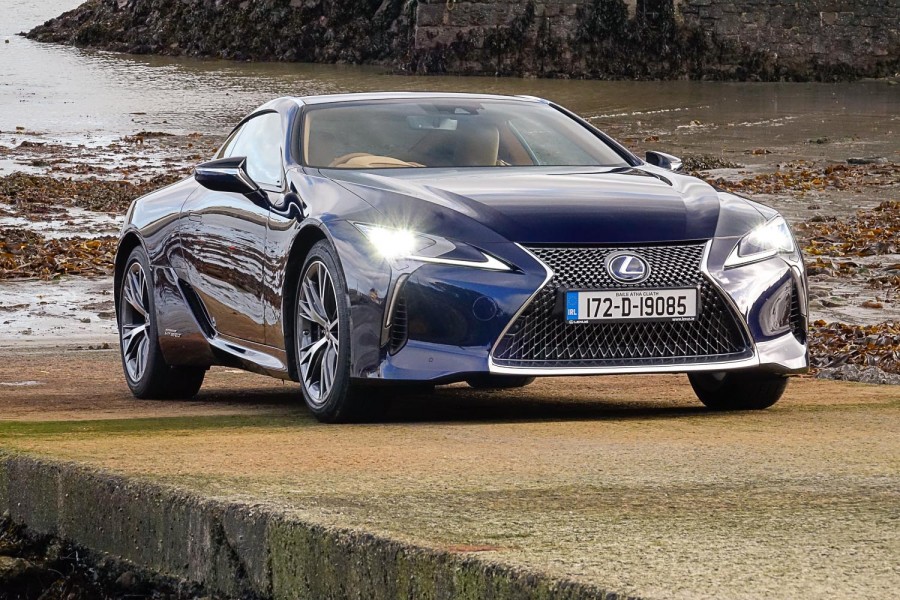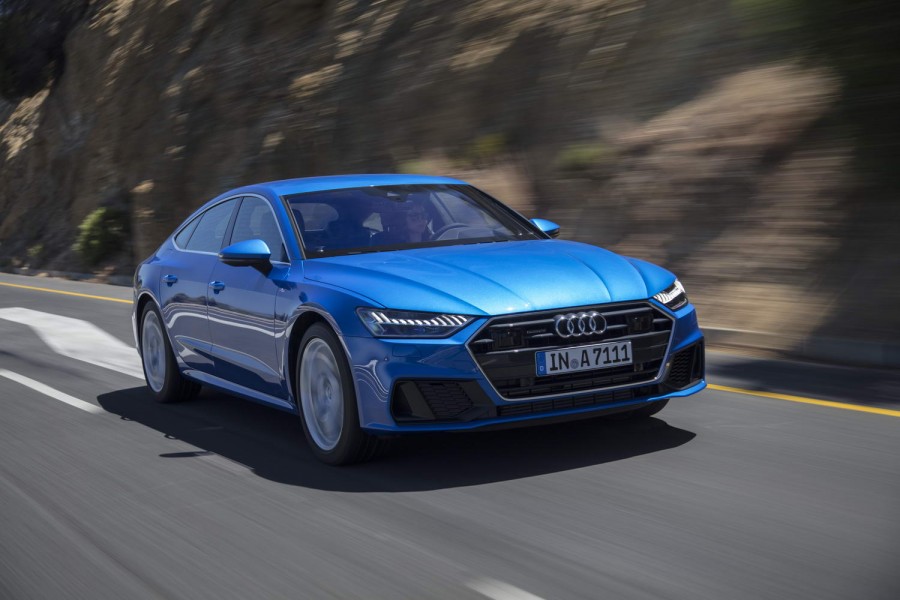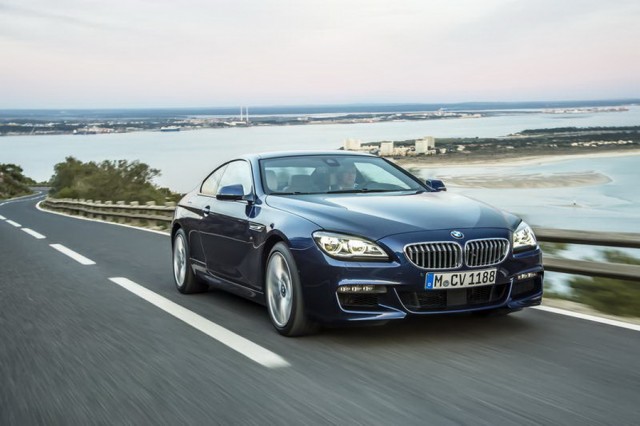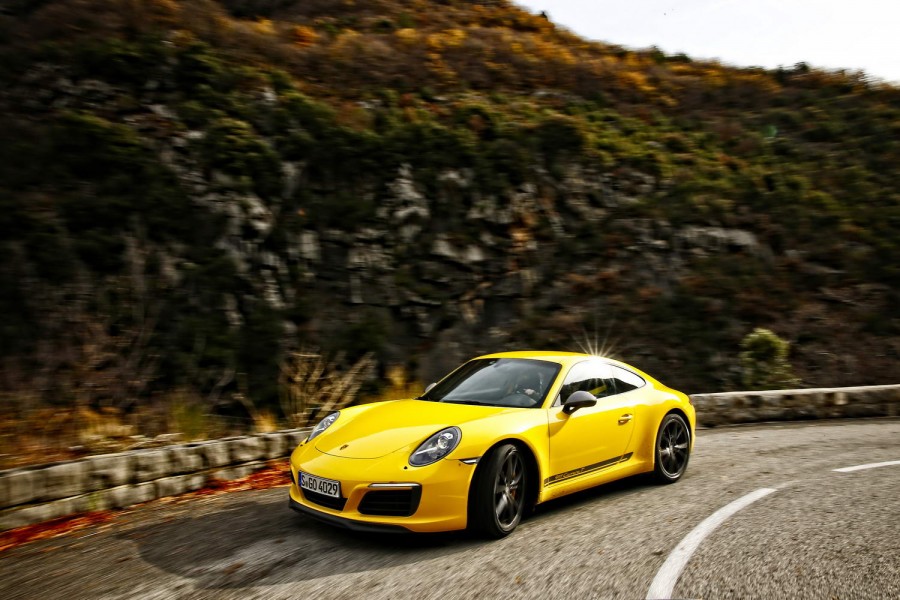Good: stunning styling, gorgeous cabin, comfort, refinement, handling, quality, technology
Not so good: fiddly infotainment, tiny back seats and boot, dynamically not quite at peak performance, hybrid oddities
I don't think that anyone who's serious about their cars still doubts Lexus' abilities. There may yet be a bit of German posh car snobbiness about 'posh Toyotas' and so forth, but for anyone who cares to look, Lexus is now truly a worthy alternative to the German big three, not to mention Jaguar. The quality was always there - after all, climb into even a twenty-year-old LS 400 and it's still like being smacked in the face with a quality and reliability masterclass - but it took the 2010 launch of the LFA supercar to really hammer home the point. The point being that, if it fancied doing so, Lexus could do a Ferrari rival.
This, the Lexus LC 500h, is not a Ferrari rival. It lacks the screaming V10 engine, with its 560hp and incredibly small dimensions. It lacks the LFA's almost-entirely carbon construction, instead being made of good old steel and aluminium. And it lacks the LFA's stratospheric €600,000-and-then-some price tag. In fact this, the LC 500h, is actually a bit of a bargain.
How so? How can a car that clocks in at €110,950 be considered a bargain? Simply because of how it looks. I know some of Lexus' current styling can be very divisive, and that big 'spindle' grille, with its chrome mandibles, upsets as many as it enraptures, but to my eyes the LC is every bit as stunning as any current Ferrari, Lamborghini and/or Maserati. I seriously doubt that any of the current Italian exotica would turn appreciably more heads on pulling up to the kerb than this Lexus, in spite of the fact that the Japanese car costs around a quarter of any of their hip-high price tags. It's long, low, lean, sculpted and sexy - a proper 2+2 coupe in a world overrun with SUVs and crossovers.
The theatre doesn't seem to abate as you actually climb in. The door handles pop out to a 60-degree angle from their resting, flush, position (and one imagines that they'll do so more reliably, long term, than those of some others) and as you pop the door you slide down into the low-set cabin. The first thing you'll notice, if you're built like me, is that the front seats are a little narrow across the bolsters, even if overall they're pretty comfortable. The driving position is also a touch offset, but the rest of what you see is almost wholly impressive.
We especially love the interior door handles, which sounds like a staggeringly nerdy thing to say, but once you see the almost-perfect way these fillets of metal emerge from the interior trim, without the usual cheap plastic surround, you'll understand. Then there are the gorgeously clear digital instruments, very like those of the LFA, including the tachometer that whirrs from side to side depending on how you have the panel setup. Is there any point to that? Not really, but it does look cool.
Quality levels are, of course, astonishingly good, and every control (from the volume knob for the stereo to the odd 'ear' switches, which emerge from the sides of the instrument hood, and which control the traction system and driver mode selection) look and feel terrific.
Well, almost. As usual, with Lexus, the infotainment system must come in for a bit of stick. While the graphics have, generally, improved, the menu layout is often confusing and cluttered, and the decision to use a laptop-style trackpad to control the big screen is just daft. Even with the little haptic feedbacks, it's impossible to use on the move. Lexus, your German competition use round click wheels for a reason. There's also the slightly odd effect that the beige-brown interior colour scheme of our test car meant that the door pockets, shinier and cheaper than the rest of the cabin, did look a bit like they'd come from an early-eighties Camry.
The engine did not come from an early-eighties Camry. This being the hybrid LC, it's packing a 3.5-litre V6 petrol engine, which, together with its electric motor, means you get 358hp at the rear wheels. That does, we'll grant you, sound a touch puny compared with the 477hp of the non-hybrid V8 version, and the 500hp+ outputs you'll find in the German competition, but there is some magic in this engine. Thanks to the fact that it has 348Nm of torque, and the electric motor adds 300Nm when you ask for it, the 0-100km/h time is staggeringly quick - five seconds dead, a mere 0.3 seconds behind the V8 version. At no point does this car feel slow, hybrid or no hybrid.
Of course, it's refined when you're not pressing on, with that lovely, eerie silence of running on just the batteries (lithium-ion this time, not the old-school nickel ones) and whisper-silent on the motorway. The only problem comes when you accelerate hard, when the engine, aided (if that's quite the right word) by various valves and sound symposers tries to give itself a racy, exciting note but just manages to sound actually a bit drone-y.
This is, of course, not helped by the e-CVT hybrid gearbox. It's not just the gearbox for a hybrid, it is itself a hybrid - using two opposing electric motors for the step-less CVT bit, backed up by four conventional automatic gears and an overdrive for extra economy. Like most hybrids, it's best driven relatively gently, building speed gradually rather than banging in hard acceleration, because when you do mash the throttle, it will let the engine surge to maximum rpm while the CVT shuffles around.
You will forgive it when you find some corners, though. Now, there are two limiting factors to the LC 500h's handling. One is the weight - near as dammit two tonnes - and the other is steering feel, which is relatively lo-fi. Jump in expecting the LC 500h to match a Porsche 911 corner-for-corner, and you'll be disappointed. It's not a million miles away, though, and that fact in itself is remarkable. The LC 500h is, perhaps unsurprisingly, a classic GT, built for annihilating long distances in a single lunge, rather than mixing it with RS1800s on mountain stages, but it does a surprisingly good job of the latter. The inherent poise and balance are excellent, turn-in is sharp, grip is prodigious and only a slightly over-firm ride limits what you can do with an LC on Irish roads. Better as a laid-back cruiser? Of course, but there are deep layers of reward for the keener driver prepared to give the low-slung Lexus its head.
Oh, and it does all of this while returning economy and emissions figures that would be alien to any competitor. Good luck getting it to do the official 5.8 litres per 100km, but we did average a reasonable 8.7 litres per 100km (that's 32mpg) and regularly saw 7.0 litre/100km (40mpg) on long, gentle runs. Plus, the CO2 figure is just 145/gm, so you'll spend no more on motor tax in a year than you would for an average petrol-engined hatchback. Should economy and emissions matter in a plutocratic €100k coupe? Well, yes - why shouldn't they? It's not a question of giving wealthy car buyers a tax-break, but instead a question of making sexy, high-performance cars as environmentally-sensitive as a regular family car. Nothing wrong with that.
Nothing wrong with the LC 500h, either. Well, nothing aside from the tiny back seats, the useless boot, the droning gearbox and the fiddly infotainment. Small issues, though, considering how beautiful (and I don't use the word lightly) this car is, how engaging and enjoyable it is to drive, and how technically advanced it is. A bargain, at €110,950? Oh yes...








































